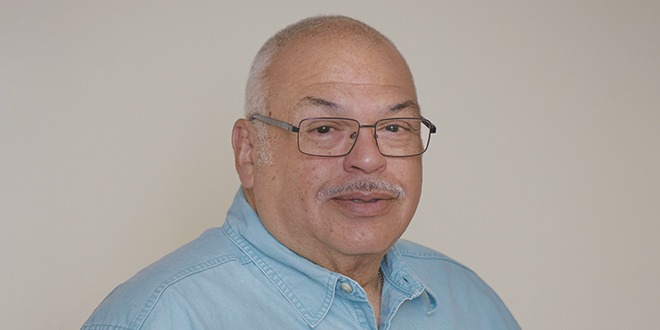People with type 2 diabetes write back to their younger selves, to share personal insights and reflect on their experience of living with diabetes and starting on insulin therapy. In this post, Henry reflects on living with diabetes.
Growing up as a young boy in Pittsburgh, USA, Henry remembers visiting one of the most wonderful people in his life: his grandmother. He loved spending time with her, except for one part: seeing needles and vials of insulin in the refrigerator. She had diabetes and this paraphernalia frightened him. “All needles looked scary then,” he says. “After seeing them, I developed a silly phobia for needles. I imagined them being huge monsters in my little mind.”
When he was diagnosed with type 2 diabetes at age 35, he didn’t have to deal with needles at first. In fact, he didn’t really change much at all, even though his wife taught endocrinology at a medical school. He took the tablets that were prescribed, but otherwise lived life as he always had. “I didn’t test my blood sugar as often as I should have. I did whatever I wanted to do. It was like I had gotten a rash that didn’t hurt and didn’t itch.”
Eleven years later, Henry was working at a health organisation. His first job there was managing the organisation’s housekeeping and laundry functions. After that, he worked in the contracts department, surrounded by exciting new medical developments and possibilities. He had become good friends with his endocrinologist, who was a former student of his wife’s. But when his endocrinologist told him that he needed to add insulin to his treatment plan, he was scared, remembering his grandmother’s frightening needles. Now 65, he is writing to himself at 46 just after he was sent to a nurse’s station to await instruction.
Dear Hank
You are sitting by yourself in a small area used by the nurses. You are panicking inside because you are thinking about the vials and the huge needles in Grandma’s refrigerator. You are afraid of needles. You work with diseases every day – your company carts out hundreds of kilograms of needles a day – but it is scary when it is you.
Hank, it is time for a change. You have the best support system going. Your wife is an endocrinologist, you work at a large health organisation, with all of the information in the world at your fingertips, and you have known about diabetes since you were a child.
You have overcome problems before. At school you were told that you would probably not go to college and would end up pursuing a practical apprenticeship. But you showed them – by studying hard you overcame the low expectations of your school and went to an Ivy League university and have an MBA. What you’ve learnt making your way through school and your career is that you’re highly goal orientated. You figured out how to assess any given situation, make your plan and then work your plan, adjusting and revising as you go. You’ve succeeded by keeping your eye on the goal.
This is exactly what you need to do now. You know that medicine has progressed beyond Grandma’s vials and harpoons. You know that you eat too much of the wrong foods. Everybody has told you this for the past 12 years and you did not listen.
In two minutes the nurse will be in to teach you how to inject yourself. When you see the small size of the needle you won’t feel as scared as you were before. It will be time to get on your plan and look after yourself and your diabetes.
Henry
This story has been edited by Ellyn Spragins and shared with support from Novo Nordisk Canada. The views and opinions expressed are not representative of Novo Nordisk, and should not be considered treatment advice. Novo Nordisk has permission to share this letter and included personal details.
 Diabetes Care Community Learn, connect and care
Diabetes Care Community Learn, connect and care




